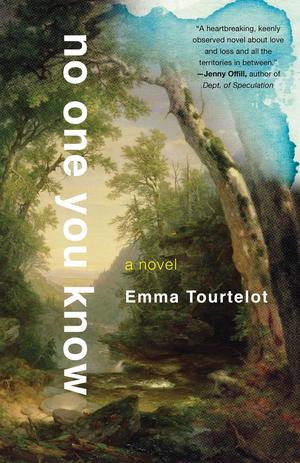Emma Tourtelot’s Novel: A Deep Dive into Modern Motherhood and Grief
In the ever-evolving landscape of contemporary literature, Emma Tourtelot’s debut novel, ‘No One You Know,’ emerges as a powerful and resonant exploration of the complexities of motherhood and grief. This compelling narrative doesn’t shy away from the raw, often unspoken, emotions that define the human experience, particularly within the context of our hyper-connected, digital age. Tourtelot masterfully weaves a tale that is both deeply personal and universally relatable, inviting readers to confront profound questions about connection, loss, and the enduring power of memory.
Unpacking the Core Themes: Motherhood and the Digital Echo
At its heart, ‘No One You Know’ delves into the multifaceted nature of motherhood. It’s not a romanticized portrayal, but rather an honest depiction of the immense joys, the crushing anxieties, and the profound sacrifices that come with raising a child. Tourtelot captures the unique pressures faced by mothers today, navigating societal expectations, personal aspirations, and the relentless demands of family life.
What sets this novel apart is its insightful examination of how technology intersects with these fundamental human experiences. In an era where our lives are increasingly documented and shared online, the novel explores how digital footprints can both preserve and complicate our understanding of ourselves and our relationships. This adds a fascinating layer to the exploration of grief. The digital age offers new avenues for remembrance and connection, but also potential for overwhelming sorrow and a distorted sense of reality.
The Digital Age as a Character
Tourtelot doesn’t just use the digital world as a backdrop; it becomes an integral part of the narrative’s fabric. Social media feeds, digital archives, and online communication become conduits through which characters grapple with their past, present, and future. This creates a unique tension, where the tangible and the virtual worlds collide, shaping perceptions and influencing emotional processing.
The novel raises critical questions about legacy and remembrance in a world saturated with data. How do we truly honor those we’ve lost when their digital presence lingers? How does the curated perfection of online personas contrast with the messy reality of human emotion and loss? These are the kinds of thought-provoking inquiries that ‘No One You Know’ prompts its readers to consider.
Navigating the Labyrinth of Grief
Grief is a central pillar of Tourtelot’s novel, and she handles this sensitive subject with remarkable depth and authenticity. The book illustrates that grief is not a linear process, but a complex, often unpredictable journey. It can manifest in unexpected ways, resurfacing at different times and in different forms.
The characters in ‘No One You Know’ experience loss in ways that are deeply personal, yet universally understood. Tourtelot’s prose is unflinching, capturing the raw pain, the moments of profound sadness, and the slow, arduous path toward healing. The digital aspect amplifies this, as characters might find themselves constantly confronted with memories through old photos, messages, or shared online spaces.
The Impact of Digital Memory on Loss
Consider the common experience of scrolling through old photos on a phone or social media. For those grieving, these digital fragments can be both a comfort and a source of acute pain. Tourtelot expertly explores this duality, showing how digital memories can become a double-edged sword.
The novel prompts us to think about how we construct narratives around loss in the digital age. Are we preserving memories in a healthy way, or are we trapping ourselves in a cycle of digital mourning? This nuanced perspective is what makes ‘No One You Know’ such a vital contemporary novel. It acknowledges that our experience of loss is now intrinsically linked to our digital lives.
Characters Who Resonate
The strength of ‘No One You Know’ lies not only in its thematic depth but also in its richly drawn characters. Tourtelot imbues her characters with a palpable humanity, making their struggles and triumphs feel incredibly real. Readers will find themselves deeply invested in their journeys, empathizing with their vulnerabilities and celebrating their resilience.
The novel excels at portraying the intricate dynamics within families and friendships, particularly as they are tested by loss and the pressures of modern life. The internal monologues and the subtle interactions between characters reveal a profound understanding of human psychology.
Why ‘No One You Know’ is a Must-Read
Emma Tourtelot’s ‘No One You Know’ is more than just a story; it’s an experience. It’s a novel that will linger with you long after you’ve turned the final page, prompting introspection and conversation. Its exploration of motherhood and grief in the digital age is timely, relevant, and executed with exceptional skill.
Here are some key takeaways that make this novel stand out:
- Authentic Emotional Portrayal: The novel doesn’t shy away from the difficult emotions associated with motherhood and loss.
- Digital Age Relevance: It offers a fresh perspective on how technology shapes our experiences of connection and grief.
- Compelling Characters: The characters are complex, relatable, and beautifully developed.
- Profound Themes: It tackles universal themes of love, loss, memory, and resilience with grace and intelligence.
For anyone who has ever navigated the joys and sorrows of raising a child, or experienced the ache of losing someone dear, this book offers solace, understanding, and a powerful reminder of our shared humanity. It’s a testament to the enduring power of storytelling to illuminate our lives and connect us to one another.
Further Reading and Resources
For those interested in delving deeper into the themes of grief and digital memory, consider exploring resources that offer support and further insight:
- The Dougy Center: This organization provides grief and loss support for children, teens, young adults, and their families. Their website offers valuable articles and resources on navigating loss. Visit The Dougy Center.
- Psychology Today: This publication frequently features articles on coping mechanisms for grief, the psychological impact of loss, and navigating challenging emotional landscapes. Explore Psychology Today.
Emma Tourtelot’s ‘No One You Know’ is a significant contribution to contemporary fiction. It’s a novel that speaks to the present moment, acknowledging the unique challenges and opportunities of our digital lives while remaining firmly rooted in the timeless truths of the human heart.
Conclusion: A Reflection on Connection and Loss
Emma Tourtelot’s ‘No One You Know’ stands as a poignant and timely novel, masterfully dissecting the intricate tapestry of motherhood and grief through the lens of the digital age. It’s a narrative that resonates deeply, reminding us of the enduring human need for connection, even as technology reshapes how we love, remember, and mourn. The novel’s exploration of how digital footprints intertwine with our most profound emotional experiences offers a fresh and vital perspective on loss and remembrance.
If you’re looking for a book that is both emotionally resonant and intellectually stimulating, one that speaks to the complexities of modern life, then ‘No One You Know’ is an absolute must-read. Pick up your copy today and immerse yourself in this unforgettable story.




